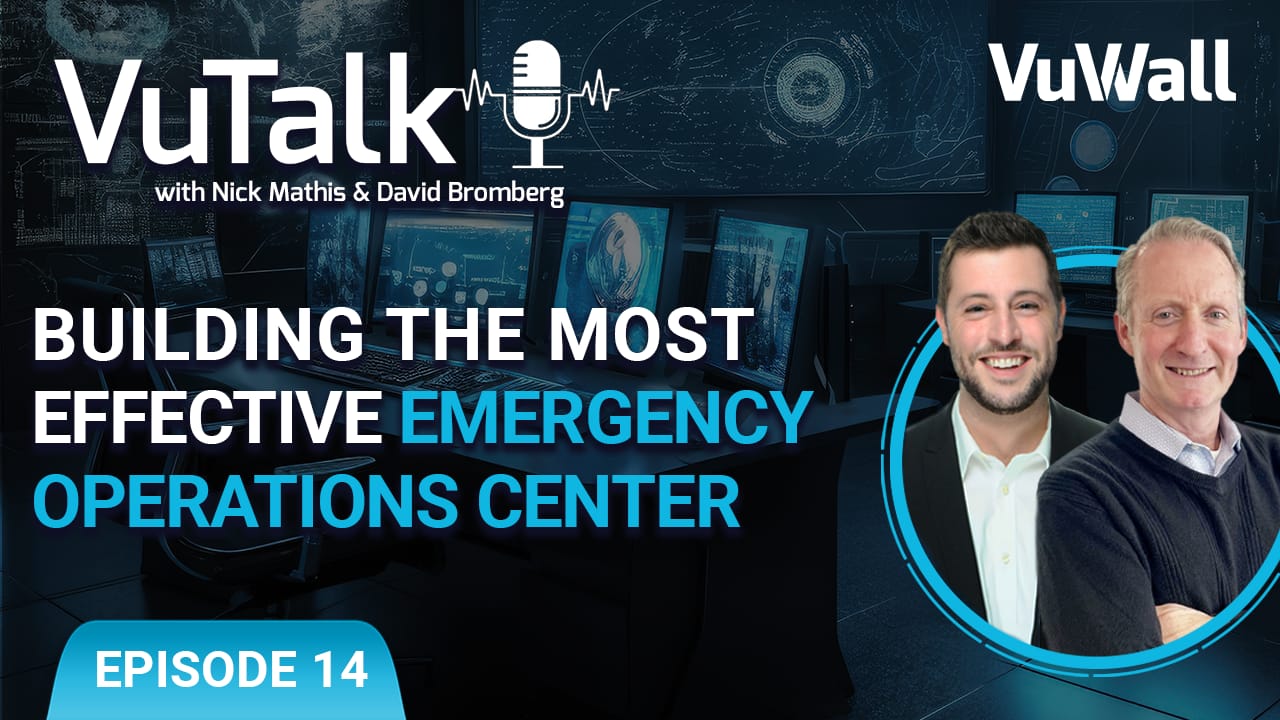
Building the Most Effective Emergency Operation Centers (EOC)
David Bromberg and I, Nick Mathis, are VuWall’s Directors of Business Development. In this VuTalk episode, we discuss the importance of Emergency Operations Centers (EOCs) in crisis management. We highlight how EOCs integrate various sources like HDMI, web browsers, and IP camera feeds into display systems such as LCD walls, LED walls, and projectors. The conversation emphasizes the need for adaptable video wall management systems that can function across multiple rooms and provide real-time, actionable insights during emergencies. We highlight the evolution of EOCs from small afterthought rooms to critical, well-designed spaces essential for effective crisis management.
For more information, click here to watch the full video!
In this 14th VuTalk episode, David and I discuss the vital role of Emergency Operations Centers (EOCs) in crisis management. As climate change intensifies, EOCs are becoming more essential for cities to handle emergencies efficiently. The conversation highlights a recent deployment in the Pacific Northwest, showcasing the flexibility of EOCs in integrating diverse video sources and displays across multiple rooms, ensuring comprehensive situational awareness. Here’s a brief summary.
The Importance of Versatile and Scalable Solutions
David emphasizes the agnostic nature of our systems, which can accommodate various sources (HDMI, web browsers, IP cameras) and display types (LCD walls, LED walls, projectors). This adaptability is crucial for EOCs, which must be prepared for a wide range of incidents. The deployment included not only a main wall but also adjacent rooms and briefing facilities, demonstrating the necessity for expansive and interconnected systems.
EOCs: From Afterthoughts to Critical Spaces
EOCs have evolved from small, secondary rooms to pivotal spaces in facility design. Today, more square footage is allocated to EOCs, recognizing their importance in effective crisis management. EOCs host diverse personnel, from former police officers to public officials, necessitating user-friendly systems that don’t require constant technical support. These centers need tools to manage video walls and control layouts seamlessly, ensuring readiness for any situation.
Empowering Users with Self-Sufficient Systems
There’s an increasing need for EOCs to have self-sufficient systems. Personnel must be able to operate and maintain these systems without relying on external integrators. This includes managing video sources and destinations, as well as updating control systems easily. Providing a single platform for these functions enhances the EOC’s efficiency and effectiveness in handling crises.
Conclusion
As emergencies become more frequent and complex, the role of EOCs in crisis management is more crucial than ever. Adaptable, scalable, and user-friendly systems are key to ensuring these centers can meet the demands of any incident.
For more insights and a live demo of VuWall solution, visit vuwall.com/demo
